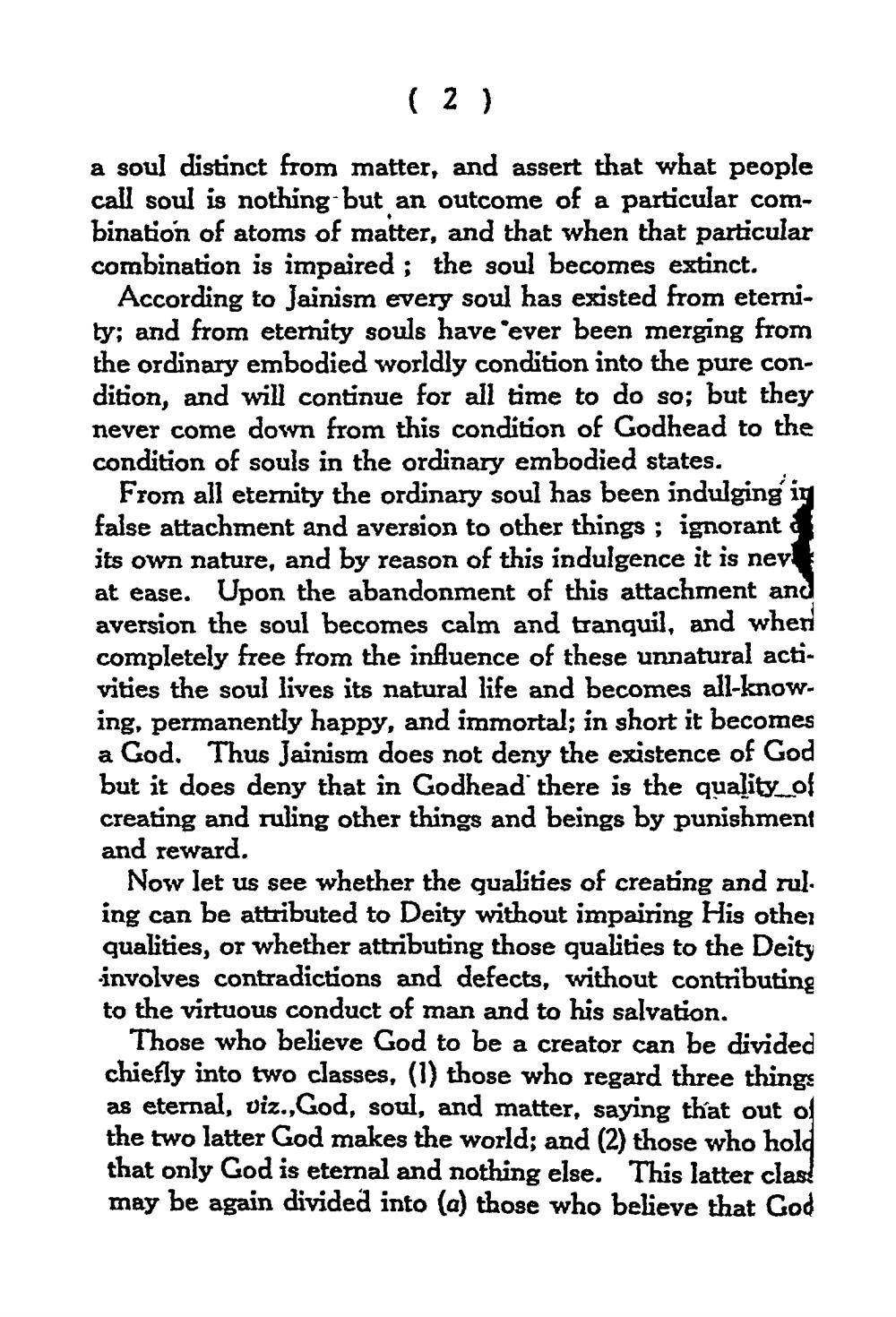Book Title: Jainism Not an Atheisam Author(s): Herbert Warren Publisher: Herbert Warren View full book textPage 6
________________ (2) a soul distinct from matter, and assert that what people call soul is nothing but an outcome of a particular combination of atoms of matter, and that when that particular combination is impaired; the soul becomes extinct. According to Jainism every soul has existed from eternity; and from eternity souls have ever been merging from the ordinary embodied worldly condition into the pure condition, and will continue for all time to do so; but they never come down from this condition of Godhead to the condition of souls in the ordinary embodied states. From all eternity the ordinary soul has been indulging in false attachment and aversion to other things ; ignorant its own nature, and by reason of this indulgence it is nev at ease. Upon the abandonment of this attachment and aversion the soul becomes calm and tranquil, and when completely free from the influence of these unnatural activities the soul lives its natural life and becomes all-knowing, permanently happy, and immortal; in short it becomes a God. Thus Jainism does not deny the existence of God but it does deny that in Godhead' there is the quality of creating and ruling other things and beings by punishment and reward. Now let us see whether the qualities of creating and rul. ing can be attributed to Deity without impairing His other qualities, or whether attributing those qualities to the Deity involves contradictions and defects, without contributing to the virtuous conduct of man and to his salvation. Those who believe God to be a creator can be divided chiefly into two classes, (1) those who regard three things as eternal, viz., God, soul, and matter, saying that out of the two latter God makes the world; and (2) those who hold that only God is eternal and nothing else. This latter clas! may be again divided into (a) those who believe that GodPage Navigation
1 ... 4 5 6 7 8 9 10 11 12 13 14 15 16 17 18 19 20 21 22 23 24 25 26 27 28 29 30 31 32 33 34 35 36 37
